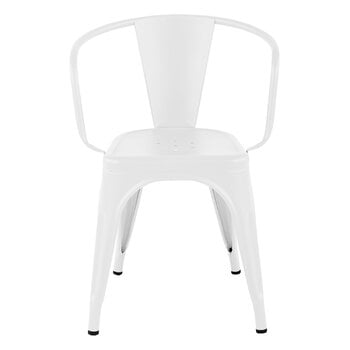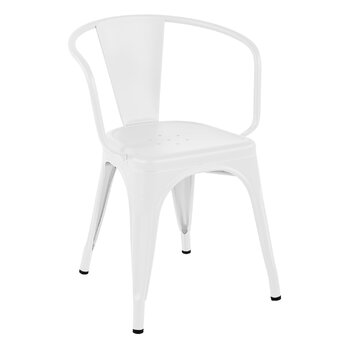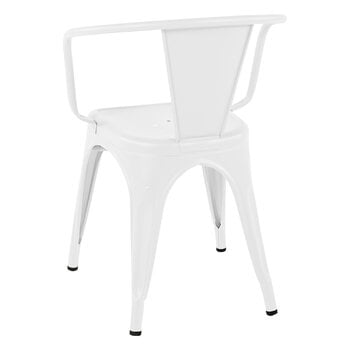The Tolix A56 armchair was designed by Jean Pauchard in 1956 and updated with a wider seat in 2019.
The classic metal furniture by Tolix has entered the collections of numerous design museums. The trademark Tolix was registered already in 1927, and soon the different models found their place in factories, offices and hospitals, as well as outside, on café terraces and in public parks. At the end of the 50's, Tolix produced over 60 000 units annually. After that, the Tolix furniture has become increasingly popular as a part of domestic interior design. Every piece is still made in France.









